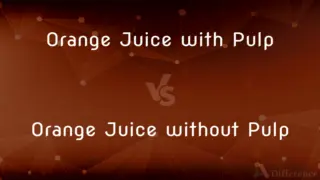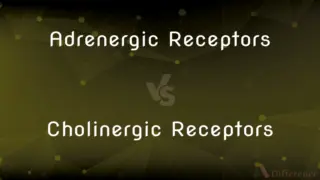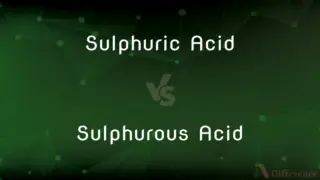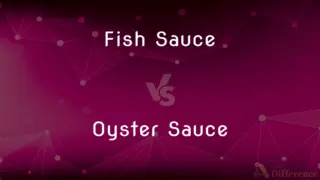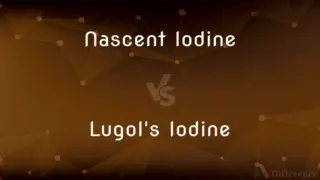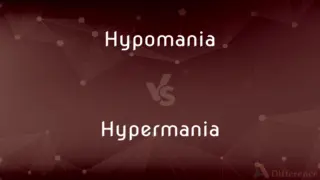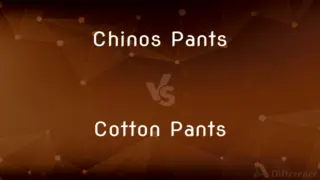Indict vs. Convict — What's the Difference?
Edited by Tayyaba Rehman — By Fiza Rafique — Updated on April 22, 2024
Indictment is the formal charge issued for a crime, while conviction is the official declaration that someone is guilty as charged.

Difference Between Indict and Convict
Table of Contents
ADVERTISEMENT
Key Differences
To indict someone is to formally accuse them of a crime, usually through the decision of a grand jury, whereas to convict someone is to find them guilty of the crime in a court of law.
The process of indictment does not determine guilt or innocence; it simply means there is sufficient evidence to bring the case to trial, while conviction results from a trial where the evidence is found to prove guilt beyond a reasonable doubt.
Indictment is typically used in the context of serious felonies in the United States, requiring the proceedings of a grand jury, on the other hand, conviction can follow any criminal trial, whether it stems from an indictment or a simpler charge like a misdemeanor.
After an individual is indicted, the next steps are arraignment and trial; however, a conviction, depending on the case, might lead to sentencing, appeals, or other legal outcomes.
The role of the grand jury in an indictment is crucial as it evaluates the prosecutor's evidence and decides whether the case should proceed, whereas, in the case of conviction, the decision is made by a trial jury or a judge, focusing on all the evidence presented during the trial.
ADVERTISEMENT
Comparison Chart
Definition
Formal accusation
Guilty verdict
Part of Legal Process
Pre-trial
Post-trial
Decision Body
Grand jury
Judge or trial jury
Evidence Requirement
Enough to charge
Proof beyond a reasonable doubt
Outcome
Leads to trial
Leads to sentencing
Compare with Definitions
Indict
To bring formal charges against, particularly in serious cases.
The corporation was indicted for violating environmental laws.
Convict
To find someone guilty of a crime in a court of law.
The jury convicted the accused after a lengthy trial.
Indict
To formally accuse someone of a crime by a grand jury.
The businessman was indicted on multiple counts of fraud.
Convict
Can apply to various crimes, from misdemeanors to felonies.
She was convicted of petty theft in a local court.
Indict
Involves the presentation of evidence to a grand jury.
Evidence presented led the grand jury to indict the official.
Convict
Decisions made by a trial jury or judge based on thorough evaluation.
The judge convicted the perpetrator based on overwhelming digital evidence.
Indict
Primarily used in the legal systems that involve grand juries.
In the U.S., indictments are common in federal courts.
Convict
Involves the conclusion of a trial with a guilty verdict.
He was convicted on evidence of eyewitness accounts.
Indict
It initiates the judicial process in felony cases.
Following the indictment, the court scheduled an arraignment.
Convict
Leads to sentencing and potential appeals.
After being convicted, the defendant faced ten years in prison.
Indict
(Law) To charge (a party) by indictment.
Convict
A convict is "a person found guilty of a crime and sentenced by a court" or "a person serving a sentence in prison". Convicts are often also known as "prisoners" or "inmates" or by the slang term "con", while a common label for former convicts, especially those recently released from prison, is "ex-con" ("ex-convict").
Indict
To accuse of wrongdoing or criticize severely
"[He] managed to indict the country's smug, liberal establishment whose lip service throttled the struggle for civil rights" (Bob Spitz).
Convict
(Law) To find or prove (someone) guilty of an offense or crime, especially by the verdict of a court
The jury convicted the defendant of manslaughter.
Indict
To accuse of wrongdoing; charge.
A book that indicts modern values
Convict
To show or declare to be blameworthy; condemn
His remarks convicted him of a lack of sensitivity.
Indict
(legal) To make a formal accusation or indictment for a crime against (a party) by the findings of a jury, especially a grand jury.
His former manager was indicted for fraud
Convict
To make aware of one's sinfulness or guilt.
Indict
To write; to compose; to dictate; to indite.
Convict
To return a verdict of guilty in a court
"We need jurors ... who will not convict merely because they are suspicious" (Scott Turow).
Indict
To appoint publicly or by authority; to proclaim or announce.
I am told shall have no Lent indicted this year.
Convict
A person found or declared guilty of an offense or crime.
Indict
To charge with a crime, in due form of law, by the finding or presentment of a grand jury; to bring an indictment against; as, to indict a man for arson. It is the peculiar province of a grand jury to indict, as it is of a house of representatives to impeach.
Convict
A person serving a sentence of imprisonment.
Indict
Accuse formally of a crime
Convict
(transitive) To find guilty, as a result of legal proceedings, or (informal) in a moral sense.
His remarks convicted him of a lack of sensitivity.
Convict
To convince, persuade; to cause (someone) to believe in (something).
Convict
(legal) A person convicted of a crime by a judicial body.
Convict
A person deported to a penal colony.
Convict
The convict cichlid (Amatitlania nigrofasciata), also known as the zebra cichlid, a popular aquarium fish, with stripes that resemble a prison uniform.
Convict
A common name for the sheepshead (Archosargus probatocephalus), owing to its black and gray stripes.
Convict
Proved or found guilty; convicted.
Convict by flight, and rebel to all law.
Convict
A person proved guilty of a crime alleged against him; one legally convicted or sentenced to punishment for some crime.
Convict
A criminal sentenced to penal servitude.
Convict
To prove or find guilty of an offense or crime charged; to pronounce guilty, as by legal decision, or by one's conscience.
He [Baxter] . . . had been convicted by a jury.
They which heard it, being convicted by their own conscience, went out one by one.
Convict
To prove or show to be false; to confute; to refute.
Convict
To demonstrate by proof or evidence; to prove.
Imagining that these proofs will convict a testament, to have that in it which other men can nowhere by reading find.
Convict
To defeat; to doom to destruction.
A whole armado of convicted sail.
Convict
A person serving a sentence in a jail or prison
Convict
A person who has been convicted of a criminal offence
Convict
Find or declare guilty;
The man was convicted of fraud and sentenced
Common Curiosities
What role does the prosecutor play in both processes?
The prosecutor presents evidence to a grand jury for an indictment and argues the case in court for a conviction.
Can someone be convicted without being indicted?
Yes, especially in cases involving lesser charges that do not require grand jury proceedings.
What happens if someone is indicted but not convicted?
They remain innocent of the charges; an indictment does not presume guilt.
How long does it take from indictment to conviction?
The duration can vary widely depending on the complexity of the case and legal proceedings.
Who decides on a conviction?
A conviction is decided by a trial jury or a judge, not a grand jury.
Is an indictment public?
Yes, indictments are typically public records, though the grand jury proceedings are secret.
What evidence is needed for an indictment?
Sufficient evidence to show probable cause that a crime was committed.
What is the difference between being indicted and being charged?
Being indicted is a specific form of being charged that involves the formal decision of a grand jury.
Can you appeal a conviction?
Yes, convictions can be appealed to higher courts.
Are all felonies required to go through an indictment?
In the federal system, yes, but state systems vary; some allow serious charges to proceed without a grand jury indictment.
What is a no-bill in grand jury terms?
A 'no-bill' is when a grand jury decides not to indict.
Can someone be retried after a conviction is overturned?
Yes, unless the acquittal is based on insufficient evidence to support a retrial.
What is the standard of proof for a conviction compared to an indictment?
Conviction requires proving guilt "beyond a reasonable doubt," a higher standard than the probable cause needed for an indictment.
What happens immediately after someone is convicted?
Post-conviction, the next steps usually involve sentencing and the opportunity to file for appeals.
Can an indictment be challenged?
It can be challenged on the grounds of insufficient evidence or improper grand jury procedures.
Share Your Discovery

Previous Comparison
Corrosive vs. Caustic
Next Comparison
Allspice vs. CloveAuthor Spotlight
Written by
Fiza RafiqueFiza Rafique is a skilled content writer at AskDifference.com, where she meticulously refines and enhances written pieces. Drawing from her vast editorial expertise, Fiza ensures clarity, accuracy, and precision in every article. Passionate about language, she continually seeks to elevate the quality of content for readers worldwide.
Edited by
Tayyaba RehmanTayyaba Rehman is a distinguished writer, currently serving as a primary contributor to askdifference.com. As a researcher in semantics and etymology, Tayyaba's passion for the complexity of languages and their distinctions has found a perfect home on the platform. Tayyaba delves into the intricacies of language, distinguishing between commonly confused words and phrases, thereby providing clarity for readers worldwide.














